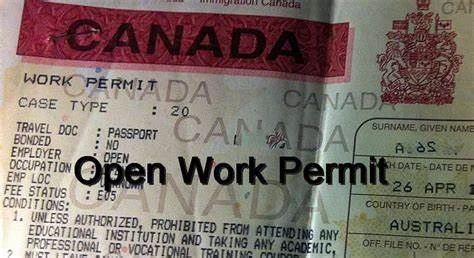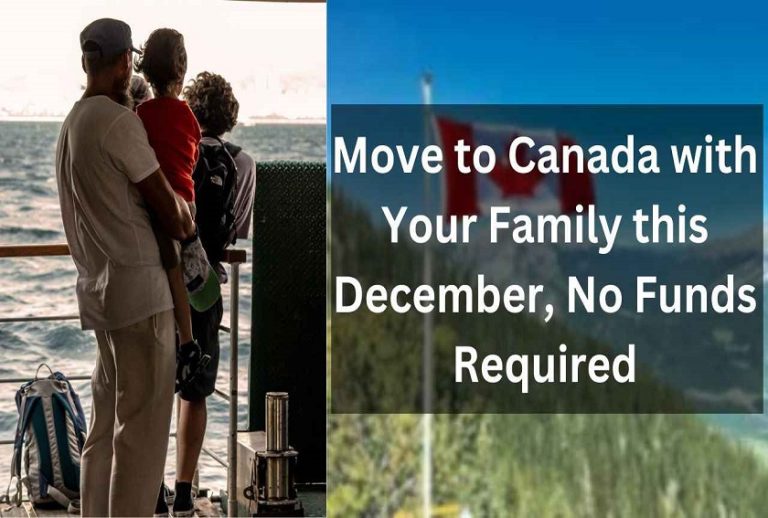Canada Open Work Permit: Everything You Need to Know
Canada is renowned for its vibrant multicultural society, robust economy, and quality of life, making it an attractive destination for individuals seeking new employment opportunities. One of the most popular ways to work in Canada is through the Open Work Permit (OWP). This comprehensive guide will cover everything you need to know about the Canada Open Work Permit, including what it is, who is eligible, how to apply, and the benefits it offers.
Advertisements
What is an Open Work Permit?
An Open Work Permit is a type of work permit that allows an individual to work for any employer in Canada, with a few exceptions. Unlike a closed or employer-specific work permit, which ties the worker to a specific employer, the OWP offers greater flexibility, enabling the holder to change employers, positions, or locations within Canada without needing a new permit.
Key Characteristics of an Open Work Permit:
- No Employer Restriction: Holders can work for any employer in Canada, except for employers listed as ineligible or those who engage in activities like striptease, erotic dance, escort services, or erotic massages.
- Flexibility: The OWP provides the flexibility to change employers or job positions without having to apply for a new work permit.
- Duration: The duration of an OWP can vary, but it is typically issued for the same length as the individual’s authorized stay in Canada.
Types of Open Work Permits
There are several types of Open Work Permits, each designed to cater to different categories of applicants:
- Post-Graduation Work Permit (PGWP): Issued to international students who have graduated from a designated learning institution in Canada.
- Spousal Open Work Permit: Available to spouses or common-law partners of skilled workers or international students.
- Bridging Open Work Permit (BOWP): Allows individuals who have applied for permanent residence to continue working while awaiting the decision on their application.
- International Experience Canada (IEC) Program: Includes categories like Working Holiday, Young Professionals, and International Co-op (Internship) permits for youth from specific countries.
- Vulnerable Workers Permit: Granted to workers who are in situations of abuse or are at risk of abuse in the context of their job in Canada.
Eligibility Criteria
Eligibility for an Open Work Permit depends on the specific type of permit being applied for. However, there are general requirements that applicants typically need to meet:
- Legal Status: Applicants must be legally residing in Canada or their home country.
- Valid Passport: A passport that is valid for the duration of the work permit is required.
- Medical Exam: Depending on the type of work and the applicant’s country of residence, a medical exam may be required.
- Proof of Relationship: For spousal open work permits, proof of relationship to the principal applicant is necessary.
- Post-Graduation Work Permit: Must have completed a program of study at a designated learning institution in Canada.
- Bridging Open Work Permit: Must have applied for permanent residence under an eligible program.
Specific Criteria for Different OWPs:
- Post-Graduation Work Permit (PGWP):
- Completed a full-time program of at least eight months at a designated learning institution.
- Application must be submitted within 180 days of receiving confirmation of program completion.
- Spousal Open Work Permit:
- Spouse or common-law partner must be a skilled worker (NOC 0, A, or B) or an international student enrolled in a full-time program.
- Valid marriage certificate or proof of common-law relationship is required.
- Bridging Open Work Permit:
- Applied for permanent residence under the Federal Skilled Worker Program, Canadian Experience Class, Federal Skilled Trades Program, or a provincial nominee program.
Application Process
The application process for an Open Work Permit can be straightforward if all the required documents are prepared in advance. Here’s a step-by-step guide:
Advertisements
Step 1: Determine Eligibility
Before applying, ensure that you meet the eligibility criteria for the specific type of OWP you are seeking. This involves understanding the specific requirements, such as having a valid job offer, relationship proof, or having completed a program of study.
Step 2: Gather Required Documents
Collect all necessary documents, which typically include:
- Passport
- Digital photo
- Proof of payment for fees
- Completed application forms
- Proof of relationship (for spousal OWP)
- Proof of graduation (for PGWP)
- Proof of permanent residence application (for BOWP)
Step 3: Complete the Application Form
Fill out the appropriate application forms. This can be done online through the Immigration, Refugees, and Citizenship Canada (IRCC) website. Ensure that all information is accurate and complete to avoid delays.
Step 4: Pay the Application Fee
Pay the required application fee. As of the latest update, the fee for an open work permit is CAD 255, which includes the open work permit holder fee and the work permit processing fee.
Step 5: Submit the Application
Submit your application online. Ensure that all documents are properly uploaded and that you receive a confirmation of submission.
Advertisements
Step 6: Biometrics and Medical Exam (if required)
Depending on your country of residence and the type of work you will be doing, you may be required to provide biometrics (fingerprints and a photo) and undergo a medical exam.
Step 7: Wait for Processing
Processing times vary depending on the type of OWP and the applicant’s location. You can check the estimated processing times on the IRCC website.
Step 8: Receive the Decision
Once a decision is made, you will be notified by IRCC. If approved, you will receive your Open Work Permit, and you can begin working in Canada.
Advertisements
Benefits of an Open Work Permit
Obtaining an Open Work Permit offers numerous benefits:
- Flexibility: The ability to work for any employer in Canada is a significant advantage, providing opportunities to explore different job roles and industries.
- Career Growth: It allows individuals to gain Canadian work experience, which can be beneficial for future permanent residence applications.
- Family Integration: Spousal Open Work Permits enable families to stay together while one member is working or studying.
- Bridge to Permanent Residency: The Bridging Open Work Permit helps individuals transition smoothly from temporary to permanent residency without a gap in employment.
Challenges and Considerations
While the Open Work Permit offers many benefits, there are also challenges and considerations to keep in mind:
- Job Market Competition: The Canadian job market can be competitive, and securing employment may require effort and time.
- Work Permit Expiry: It’s important to keep track of the work permit’s expiry date and apply for extensions or new permits as needed.
- Legal Compliance: OWP holders must comply with all Canadian laws and regulations, including employment standards and tax obligations.
- Healthcare Coverage: Depending on the province, healthcare coverage might not be immediate, and private insurance may be needed initially.
Frequently Asked Questions (FAQs)
1. Can I apply for an Open Work Permit from outside Canada?
Yes, you can apply for an Open Work Permit from outside Canada. The application process is similar, but you may need to provide additional documentation, such as biometrics and a medical exam.
2. How long does it take to process an Open Work Permit application?
Processing times vary based on the type of OWP and the applicant’s location. It can range from a few weeks to several months. It’s advisable to check the current processing times on the IRCC website.
3. Can my spouse and children accompany me if I have an Open Work Permit?
Yes, your spouse and dependent children can accompany you. Your spouse may also be eligible for an Open Work Permit, and your children can attend school in Canada.
4. What happens if my Open Work Permit expires while I am still in Canada?
If your Open Work Permit expires, you must either apply for an extension, a new work permit, or change your status (e.g., to visitor status) before the expiry date to maintain legal status in Canada.
5. Can I apply for permanent residence with an Open Work Permit?
Yes, having an Open Work Permit and gaining Canadian work experience can enhance your eligibility for various permanent residence programs, such as the Canadian Experience Class or Provincial Nominee Program.
Conclusion
The Canada Open Work Permit is a valuable pathway for those seeking employment opportunities in Canada. It offers flexibility, career growth, and a potential bridge to permanent residency. By understanding the eligibility criteria, application process, and benefits, individuals can navigate their way to a successful work experience in Canada.
Whether you are a recent graduate, a spouse of a skilled worker, or awaiting permanent residency, the Open Work Permit can be an excellent opportunity to build a future in one of the world’s most welcoming and prosperous countries.
Advertisements






